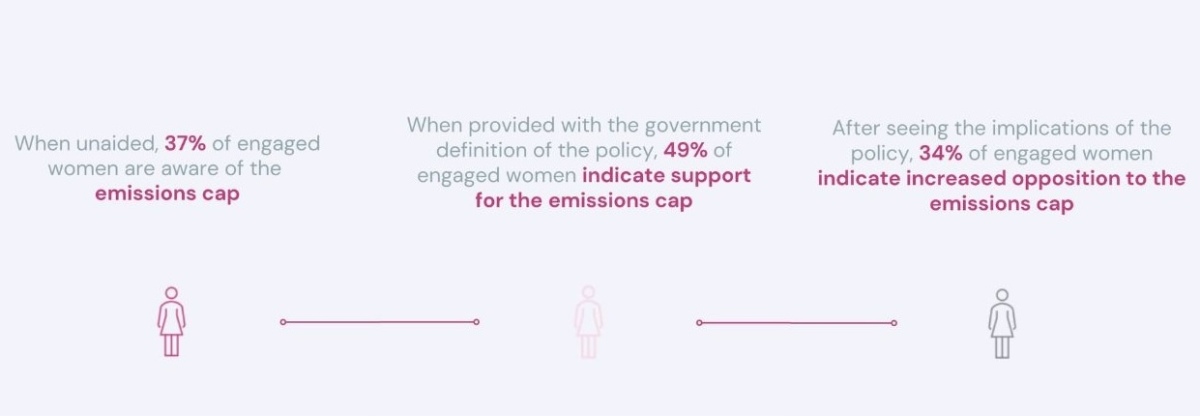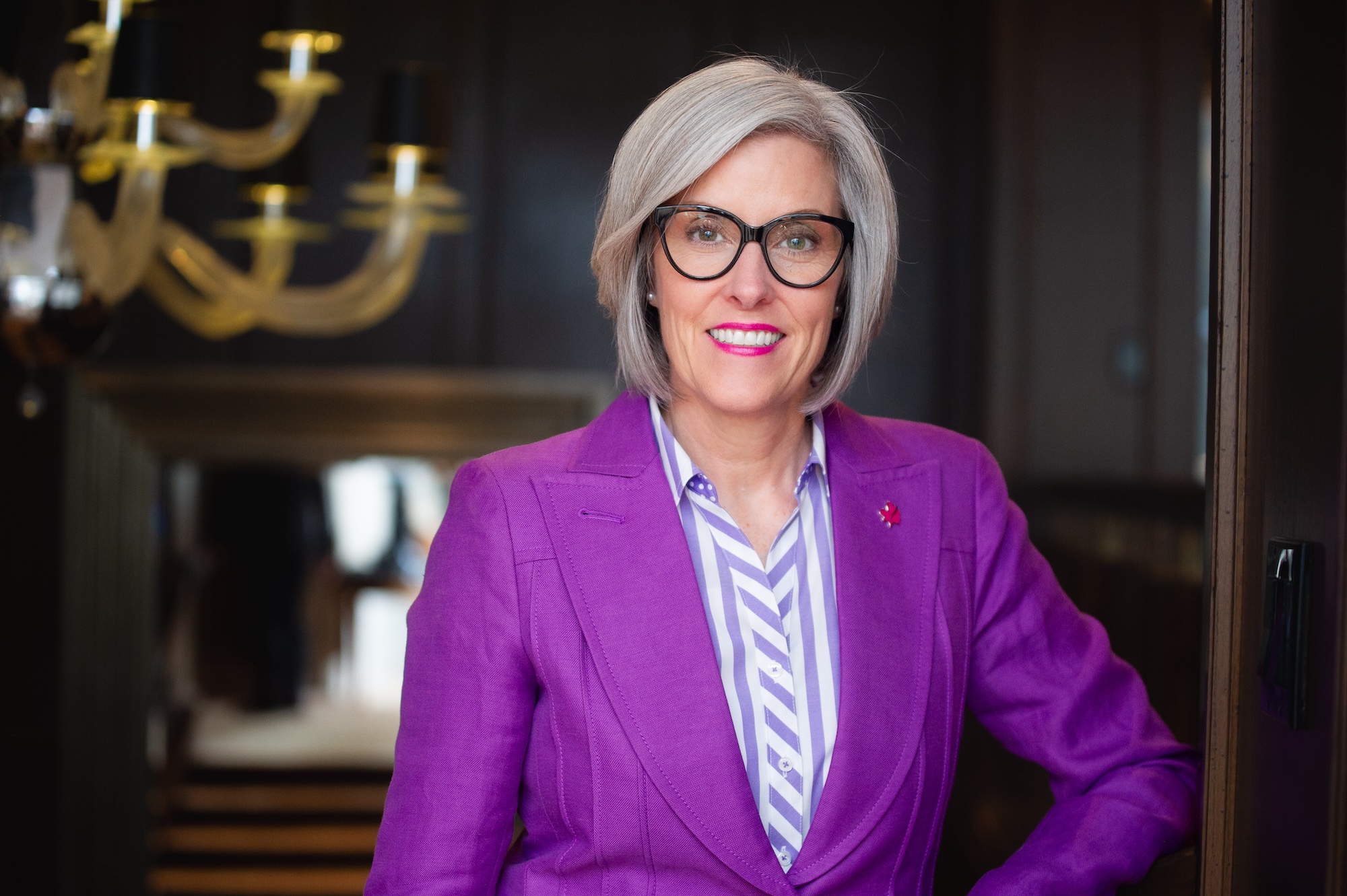By Tracey Bodnarchuk, CEO of Canada Powered by Women
This article originally appeared in the Calgary Herald.
The federal government recently released draft regulations for an oil and gas emissions cap for Canadian industry. While touted as a leap for climate action, many are left wondering about the long-term impacts.
At a glance, this cap, which aims to lower emissions related to oil and gas production 35 per cent by 2030, sounds straightforward. Our research captures the voices of 5.6 million engaged women across Canada, and with only 37 per cent even aware of it, critical questions remain unanswered: How will this cap reduce global emissions? How will it impact our wallets during an affordability crisis? How will this impact future prosperity?

Let’s be clear: environmental responsibility is crucial — and so is economic prosperity and energy security. We need a balanced approach. Policymakers must listen to Canadians or risk imposing policies that create future hardship for families in the name of present-day goals. Right now, 87 per cent of engaged women believe upcoming energy policies, like the emissions cap, will negatively impact their finances. Yet only 21 per cent believe these same policies will lower emissions. That’s a deafening alarm bell, and proposed policy moves like this indicate decision makers aren’t listening.
Instead of sparking innovation, the emissions cap is a ‘stick’ approach that will end up penalizing production — and the economic benefits, jobs and productivity that come from it.
The proposed emissions targets are unattainable with existing technology within the given timeframe. Carbon capture and storage (CCS) is essential for deep emissions cuts, but it’s not ready yet. These complex and expensive infrastructure projects require long lead times, meaning widespread availability is in the future. And limited cap-and-trade allowances mean production cuts are inevitable, and Canada’s role as a global leader in responsible energy production will diminish.
Women want carrots: incentives for technological advancements, not penalties that threaten jobs, standard of living and access to affordable, reliable energy. Our research shows 75 per cent of engaged women want emissions reductions through technology, and 76 per cent pointed to CCS specifically.
Canada will be the only major oil and gas exporter in the world with a cap. While engaged women support incentivizing cleaner technologies, this can’t come at the cost of economic prosperity. Canadian families, not government, will bear the brunt of skyrocketing grocery bills and home heating costs if Canada produces less energy and life becomes more unaffordable.
Our research shows 59 per cent of engaged women think energy is currently unaffordable — a 13 per cent increase from 2023. Imagine what that number will look like if we start cutting Canadian production.
Due to anticipated production cuts, experts at the Conference Board of Canada predict up to 151,000 Canadian jobs lost by 2030 because of the emissions cap, and a Deloitte report is predicting decreased revenue.
Reducing emissions requires a global effort. A production cap for Canada alone won’t reduce global emissions unless other countries adopt similar measures. If we can’t provide energy to countries like India and China, they will continue to meet needs with higher-emitting sources like coal, undermining global emissions reduction efforts. A Fraser Institute 2023 report highlights this cap will amount to a maximum reduction of four-tenths of one per cent of global emissions, “a reduction unlikely to have any impact on the trajectory of the climate in any detectable manner.”
Canada can lead the world in clean energy production. We need government to hear the 83 per cent of engaged women who support exporting Canadian oil and gas to help reduce global emissions.
Canadian engaged women want a better way and answers that carry weight. Why choose a path that constrains prosperity when balanced solutions will make it flourish? Policymakers must be transparent about a policy’s intentions and economic impact so women can make informed decisions. Our research shows once engaged women understand what a cap would mean for our economy, their support for it shifts.
Canada has a choice: pit economic growth against environmental responsibility or embrace innovation and Canada’s resource potential and achieve both. The consultation period is open until January 8, 2025. You can submit comments online here or email them to the Government of Canada here.
Let your voice be heard. Canada’s future prosperity depends on it.
